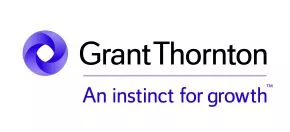Businesses owners—large and small—have at least one goal in common: to minimize taxes. To do so effectively, however, you need to implement a sound tax strategy—which can be a challenging task, particularly for busy private business owners.
Fortunately, it's only December—so, you still have some time to take stock of your particular situation and identify potential tax savings for your business. To help you in this endeavour, we're providing you with an early holiday gift: 5 key tax tips to brighten your new year.
- Determine the best compensation strategy. Getting the right mix of salary/bonus/dividend compensation is one of the more important tax decisions private business owners can Bonuses can potentially be deferred until after year-end, which can help if you expect next year's taxable income to be lower. And paying bonuses to your spouse and/or children, if they work for you, can be a good idea if their marginal tax rate is lower than yours.
- Maximize that deduction! Do you rely on the small business deduction? Be aware, if your taxable capital for the previous year exceeds $10 million, the deduction is reduced, zeroing out at $15 million. Remember that long-term debt is included in taxable capital, so before year's end, consider financing strategies to help keep taxable capital as low as possible. Also, note that for tax years beginning after March 21, 2016, new rules put a stop to certain corporate structures and partnership arrangements that multiplied access to the small business deduction, so make sure you know whether you'll be affected.
- Manage your personal loan. Sometimes you can be your own worst debtor, but you may be able to give yourself a break. Although tax consequences are generally triggered if debts you owe your corporation aren't repaid within one year of the end of the year in which the loan was made, there are exceptions you should look into if you owe your company money.
- Understand changing rules for eligible capital property (ECP). Effective January 1, 2017, existing rules for eligible capital property (goodwill, customer lists, farm quotas and other intangible assets) will be replaced by a new capital cost allowance (CCA) class for depreciable capital property. This means that the disposition of such property will be taxed as investment income, which is subject to an additional tax (that is not refunded until taxable dividends are paid out to the shareholders). Will this impact your business? If so, options include selling the business prior to December 31, 2016 or realizing the accrued gain through an internal reorganization.
- Minimize tax on gifts. Obviously, this is the time of year for gift giving, and if you do it right, your good intentions shouldn't cause unintended tax consequences to your employees. There are several rules, but for the most part non cash gifts to arm's-length employees under $500 (in total per employee) annually will not be taxed (cash and gift cards not included!), so keep track of your gifting to avoid going over. If you do it right, it's win-win, as the amounts you pay in gifts can be deducted as a business expense.
The content of this article is intended to provide a general guide to the subject matter. Specialist advice should be sought about your specific circumstances.

